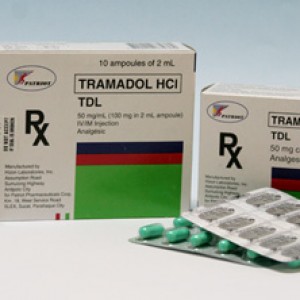 Even though tramadol is a well known and established opioid pain-reliever, according to a new study, it can be related to an increased risk of hypoglycemia, a condition caused by low blood sugar that not only leads to hospitalization but can also be fatal to patients with diabetes. The study, titled, “Tramadol Use and the Risk of Hospitalization for Hypoglycemia in Patients With Noncancer Pain” was conducted by a team of researchers from McGill University, in Montreal, Canada, and is published at the JAMA Internal Medicine journal.
Even though tramadol is a well known and established opioid pain-reliever, according to a new study, it can be related to an increased risk of hypoglycemia, a condition caused by low blood sugar that not only leads to hospitalization but can also be fatal to patients with diabetes. The study, titled, “Tramadol Use and the Risk of Hospitalization for Hypoglycemia in Patients With Noncancer Pain” was conducted by a team of researchers from McGill University, in Montreal, Canada, and is published at the JAMA Internal Medicine journal.
Generally considered a weak opioid, the medication tramadol hydrochloride has been used increasingly worldwide. Despite its supposed mild opiate qualities, the medical community has been raising concerns regarding the drug and the risk of suffering from hypoglycemia. To address this concern, researchers at McGill University and the Lady Davis Institute at the Jewish General Hospital in Montreal decided to study the effects of the drug.
A collaborative team of researchers, inncluding co-authors Samy Suissa and Laurent Azoulay, compared tramadol to codeine, in order to assess its influence in raising the risk of severe hypoglycemia, and consequent hospitalizations.
The research engaged 334,034 patients; 28,100 of them were using tramadol for the first time, while 305,924 were using codeine for the first time. The data was obtained from patients who were newly treated with either tramadol or codeine for non-cancer pain between 1998 and 2012 in the United Kingdom.
Compared to codeine, the results of the study revealed that tramadol is related to a doubled risk of hospitalization due to severe hypoglycemia, particularly within the first month of treatment with the drug. “Although rare, tramadol-induced hypoglycemia is a potentially fatal adverse event. The clinical significance of these novel findings requires additional investigation,” concluded the authors.
Hypoglycemia is an abnormality in the glucose levels in the blood, which can cause a series of symptoms; with the more serious manifestations provoked by a lack of glucose supply to the brain, such as function impairment, mild dysfunction, seizures, unconsciousness, brain damage and death. Even though hypoglycemia is often a complication associated with the treatment of diabetes, there are also less common non-diabetic causes, such as this one.
In other news, a critical step for the future development of an artificial pancreas for diabetics and hypogycemics has been launched by Medtronic, Inc. Medtronic, located in Minneapolis, just finished the first enrollment of patients for an experimental device exemption (IDE) clinical trial of its innovation Predictive Low Glucose Management(PLGM) technology.


